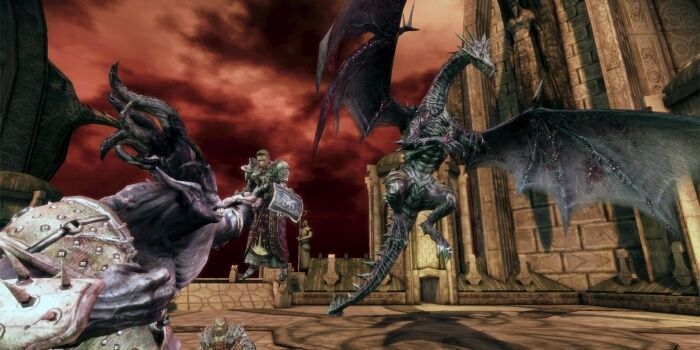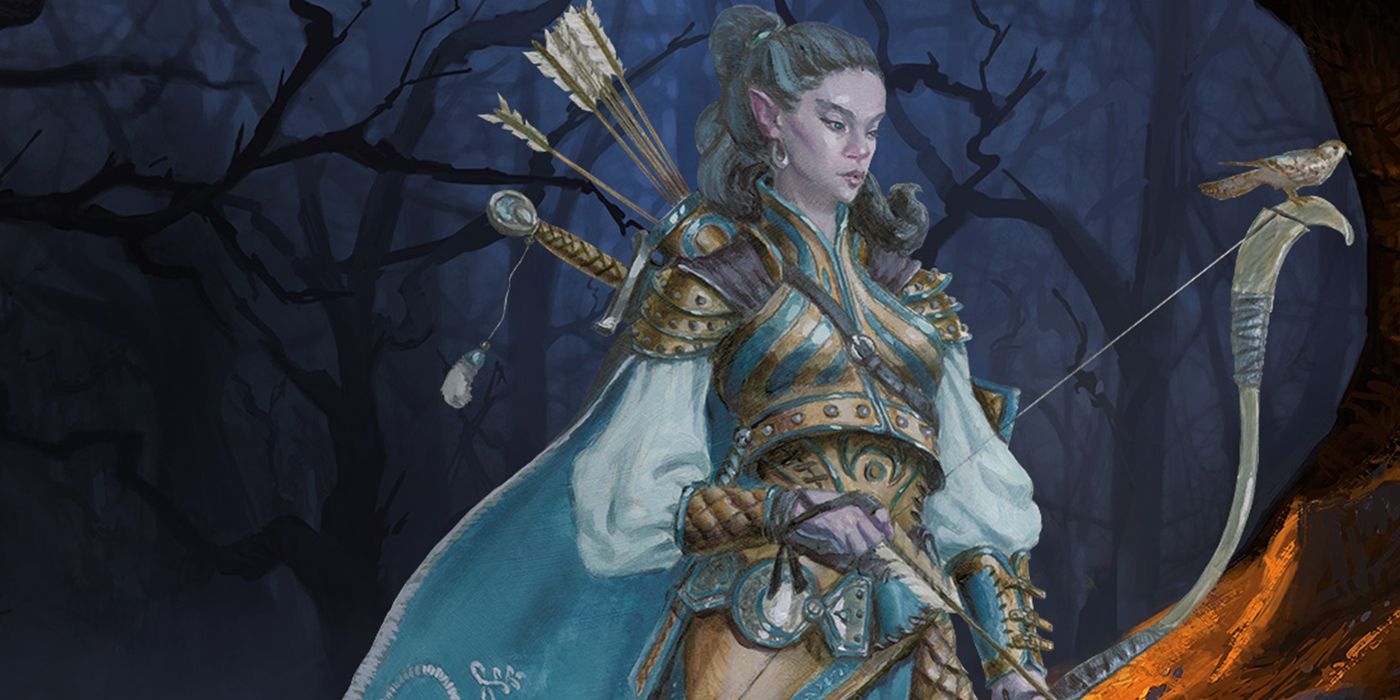
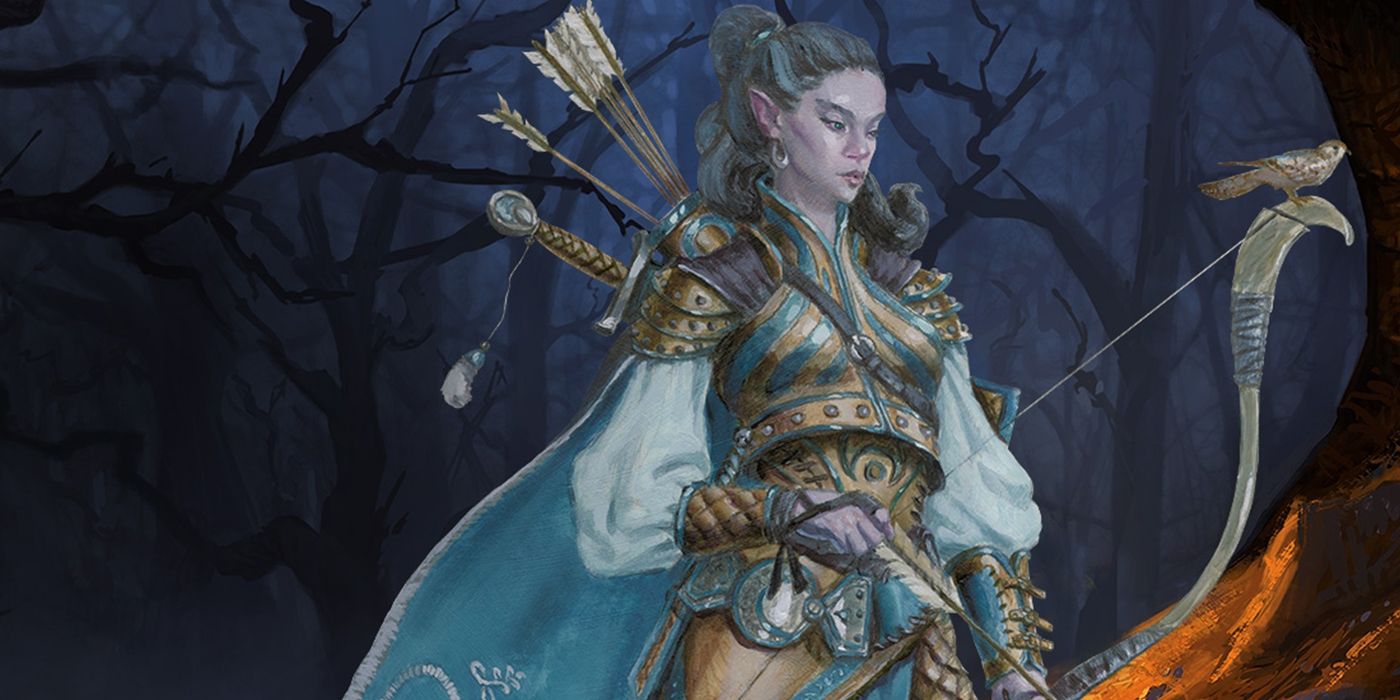
Rangers are a Dungeons & Dragons class with a long-running reputation for being underwhelming compared to the rest. Still, even with their mixed reviews in D&D 5e, the ranger's current half-caster and half-combat setup are much improved from previous iterations of the class. Furthermore, newer additions brought by Xanathar's Guide to Everything and various Unearthed Arcana should give players plenty of reason to give the ranger class a go.
RELATED: Dungeons & Dragons 5e Best Artificer Builds
Rangers can be built as an equivalent to the party's Fighter or Rogue, or in some cases, they can even be both. Add some druidic casting to the Fighter/Rogue mashup, and there's the Ranger. It's a good choice for players torn between any of those classes, offering the opportunity to be proficient as both scout and striker. Rangers may not be as well-put-together as other classes, but given the right combination of abilities and bonuses, they're a force to be reckoned with.
Updated on August 4th, 2021, by Kristy Ambrose: The Ranger continues to evolve as one of the most mysterious and yet popular classes of the RPG genre. Inspired by the literary character of Aragorn from The Lord of the Rings, the Ranger always emerges from the shadows to be more than what they first seemed. Their lives tend to be difficult and isolated, constantly grappling with their chosen enemies and safeguarding the innocent denizens of the wilderness. Now that the expanded D&D universe includes more options for customizing a Ranger, the options are even more varied.
When picking a race for Rangers with an optimal build, it's important to remember that the most important ability scores for this class are Wisdom and Dexterity. Other ability scores will vary depending on your character's role in the party.
- Wood Elf. Their +1 Wisdom and +2 Dexterity bonus are absolutely perfect for a ranger, especially combined with Fleet of Foot and the Mask of the Wild ability.
- Drow. +1 Dexterity. Also known as a Dark Elf, celebrity D&D character Drizzt Do'Urden is of this lineage, and is a multiclass Fighter-Ranger.
- Variant Humans. This race is designed to work with anything, so it's not hard to customize the character to suit this class.
- Halflings. With their +2 Dexterity and their own innate Lucky ability, combined with Brave and Halfling nimbleness, a halfling ranger won't frighten easily.
- Half-Orc. This race offers a Strength-based ranger with +2 Strength and +1 Constitution. They also get Darkvision, Savage Attacks, and Relentless Endurance, which are great for a melee build as well.
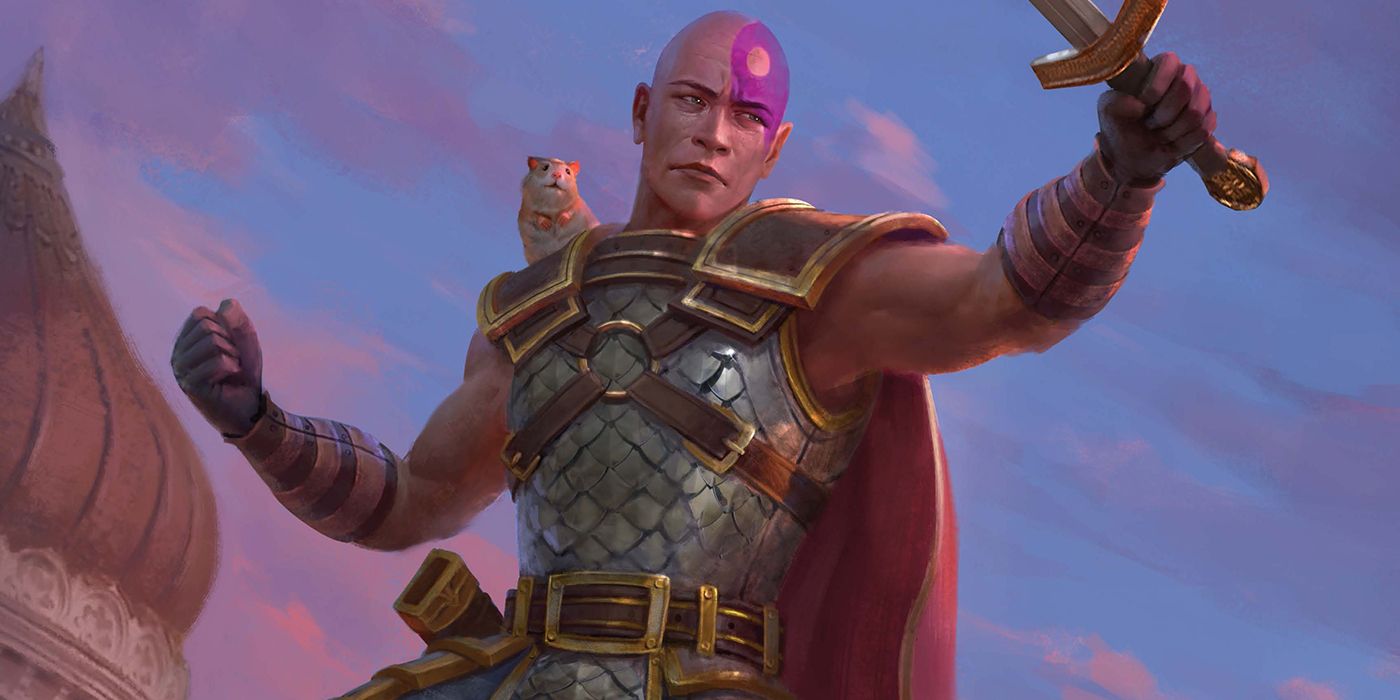
There's a lot of variety in the Ranger ability scores, as some builds can be widely different in others.
- Dexterity. This is the most important ability score for any Ranger, with the character's next three scores chosen depending on the build.
- Wisdom. The Ranger has powers comparable to that of a Cleric when it comes to spirituality, which includes some limited healing powers.
- Strength. Prioritize this stat only if the Ranger is a melee Fighter. Otherwise, Consitution is more important.
- Constitution. This stat the number of hit points a character has, and Rangers typically have a higher Constitution
- Intelligence is helpful for investigation checks and the Ranger's Favored Enemy abilities.
- Charisma. This is the closest to a sump stat this class has, but the stereotype of the scruffy, antisocial Ranger doesn't have to be the default setting.
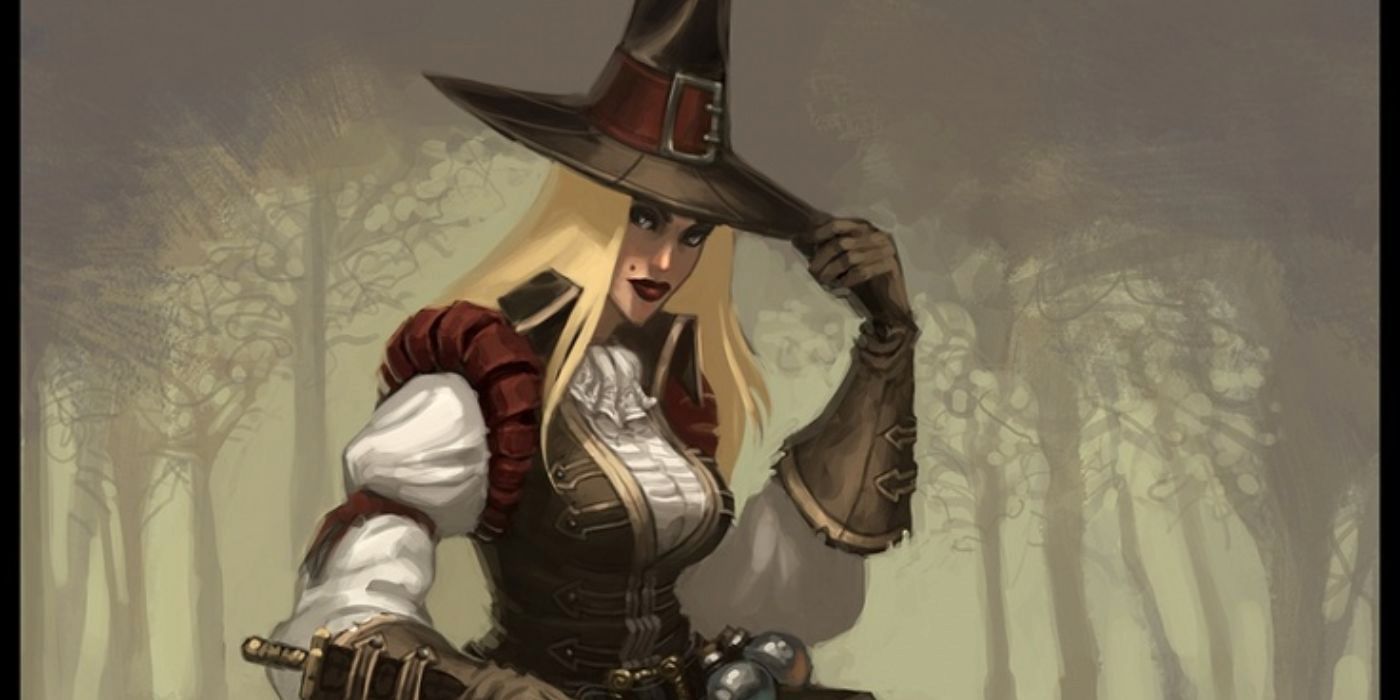
The next step is choosing the Ranger's subclass, and this was significantly improved by Xanathar's Guide to Everything. The original 5e's base D&D Player's Handbook only offered only two Ranger archetypes. Thanks to Xanathar's Guide to Everything, there are a few more from which players can choose. Rangers also get to specialize in a Fighting Style at level 2, and some of those are better with some Conclaves than others.
- Source: D&D The Player's Handbook
- Special Abilities: Fighting against threats like marauding orcs, roving gangs of thieves, or rampaging dragons.
- Perks: An animal companion.
- Ideal Fighting Style: Blind Fighting, ideal for fighting in close quarters or dimly lit spaces.
- Source: D&D The Player's Handbook
- Special Abilities: Befriending and commanding animals.
- Perks: An animal companion that also helps in combat.
- Ideal Fighting Style: Archery or Thrown-Weapon Fighting, so you can attack from a distance while your pet takes the melee route.
- Source: Xanathar's Guide to Everything
- Special Abilities: Optimized for doing the most in the first round of battle. This Conclave also has abilities that dip into the Rogue's skillset and magic like Fear and Greater Invisibility.
- Perks: Get an extra spell at certain levels.
- Ideal Fighting Style: Blind Fighting, Defense
RELATED: D&D Games to Play If You Like Baldur's Gate
- Source: Tasha's Cauldron of Everything
- Special Abilities: A steward of both the real and mystical Fey realm.
- Perks: These Rangers can infuse their weapon with Fey magic for extra damage.
- Ideal Fighting Style: Dueling, Two-Weapon Fighting
- Source: Xanathar's Guide to Everything
- Special Abilities: Oriented more towards mobility. This conclave has some of the best bonus spells a ranger can get, including Misty Step and Haste.
- Perks: Use portals to move between two locations.
- Ideal Fighting Style: Defense, Dueling
- Source: Xanathar's Guide to Everything
- Special Abilities: Trained in supernatural techniques to overcome vampires, dragons, evil fey, fiends, and other magical threats.
- Perks: Gets extra spells at certain levels.
- Ideal Fighting Style: Deuling, Druidic Warrior
- Source: Tasha's Cauldron of Everything
- Special Abilities: The ability to command a swarm, which can act as protection or as a companion.
- Perks: Learn the magic of the Swarmkeeper from the 3rd level and get a Mage cantrip from the 1st level.
- Ideal Fighting Style: Druidic Warrior, Archery
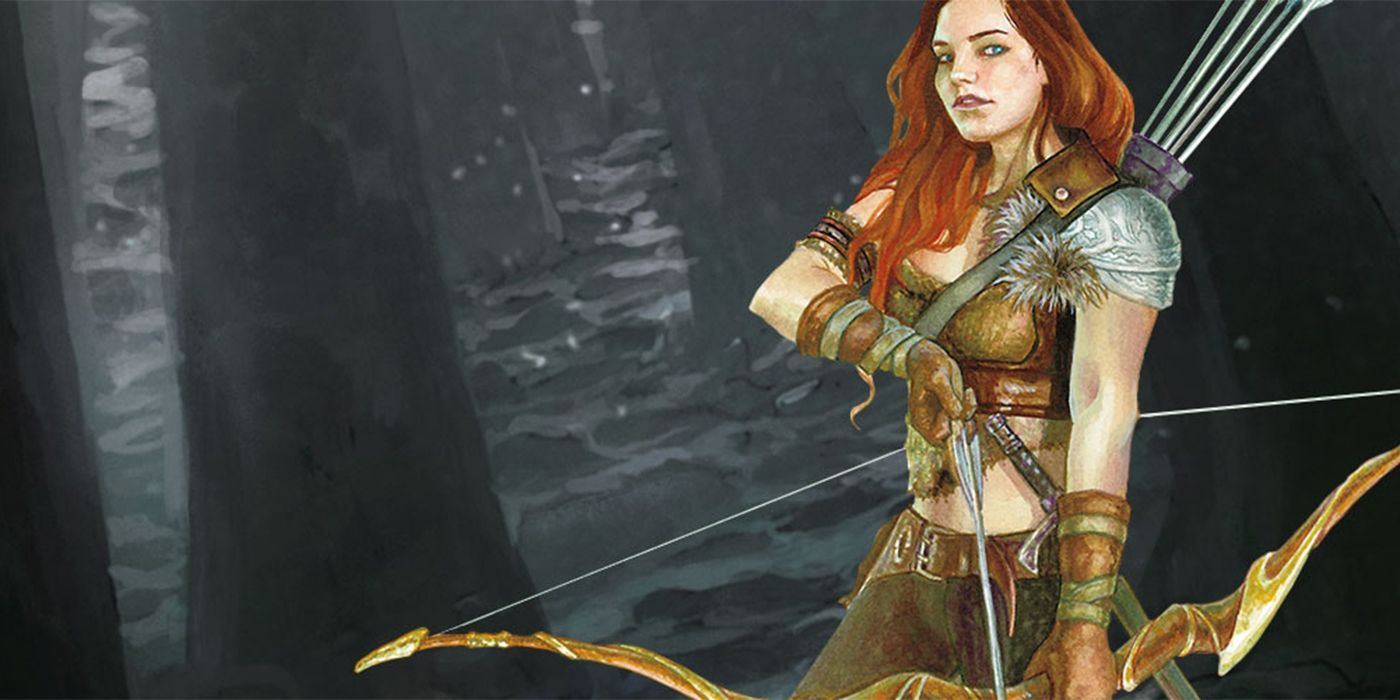
Eery single Ranger, regardless of build, needs certain Skills in order to be effective. Others are a matter of choice depending on the build. The following are essential for the class:
- Perception. Wisdom-based. This is the most commonly rolled ability in D&D, and also makes sense for Rangers of any build.
- Stealth. Dexterity-based. This is one of the Skills that allows the Ranger to be the Rogue of the party if needed.
- Acrobatics. If the Ranger is Dexterity-based, this Skill is highly recommended.
- Athletics. If the Ranger is Strength-based, Athletics would take the place of Acrobatics.
- Insight. Wisdom-based. Use this to determine the true intentions of any creature, be they friend or foe.
- Survival. Wisdom-based. Focuses on skills to aid in wilderness survival, like tracking, an obvious choice for a Ranger.
When it comes to choosing feats, the choice will likely depend on what type of weapons the ranger is optimized for.
- Sharpshooter. Ranged attacks ignore some cover and do not carry Disadvantage at long range. Chance to take -5 to hit for +10 on ranged damage.
- Resilient. +1 in one ability. Gain proficiency in saving throws when using this ability.
- Great Weapon Master. Extra attack after a melee critical hit. Choose to take -5 to attack roll to add +10 to damage with a heavy weapon.
- Polearm Mastery. Make an extra attack with a polearm weapon. Make an Opportunity Attack (OA) if a creature enters your reach.
- Crossbow Expert. Ignore the loading property of crossbows. No Disadvantage when in contact with a creature when you shoot.
- War Caster. Advantage on saving throws to maintain Concentration. Cast some spells as part of an OA by spending a Reaction.
- Alert. +5 to Initiative rolls and can't be surprised. Creatures you don't see don't gain Advantage on attack rolls.
Finally, players can top off their Ranger will a well-suited Background. There's a lot for a Ranger to work with depending on the adventuring module and the campaign the Dungeon Master is trying to create, so don't feel confined to the following suggestions.
- Outlander. The character's Athletic and Survival skills have been developed after years in the harsh wilderness. Includes guides, nomads, trappers, exiles, and outcasts.
- Sailor. These Rangers are Athletic and Perceptive denizens of marine vessels. They are pirates, privateers, and whalers.
- Far Traveler. They are as the name suggests and often come from a distant, even mythical country. These Rangers are explorers, storytellers, and mercenaries.
- Uthgardt Tribe Member. An interesting choice for a Ranger that's looking for a backstory rooted in Shamanism or Folk Heroes.
NEXT: Dungeons & Dragons: Rules That Should Be Tweaked (And How To Do It)

